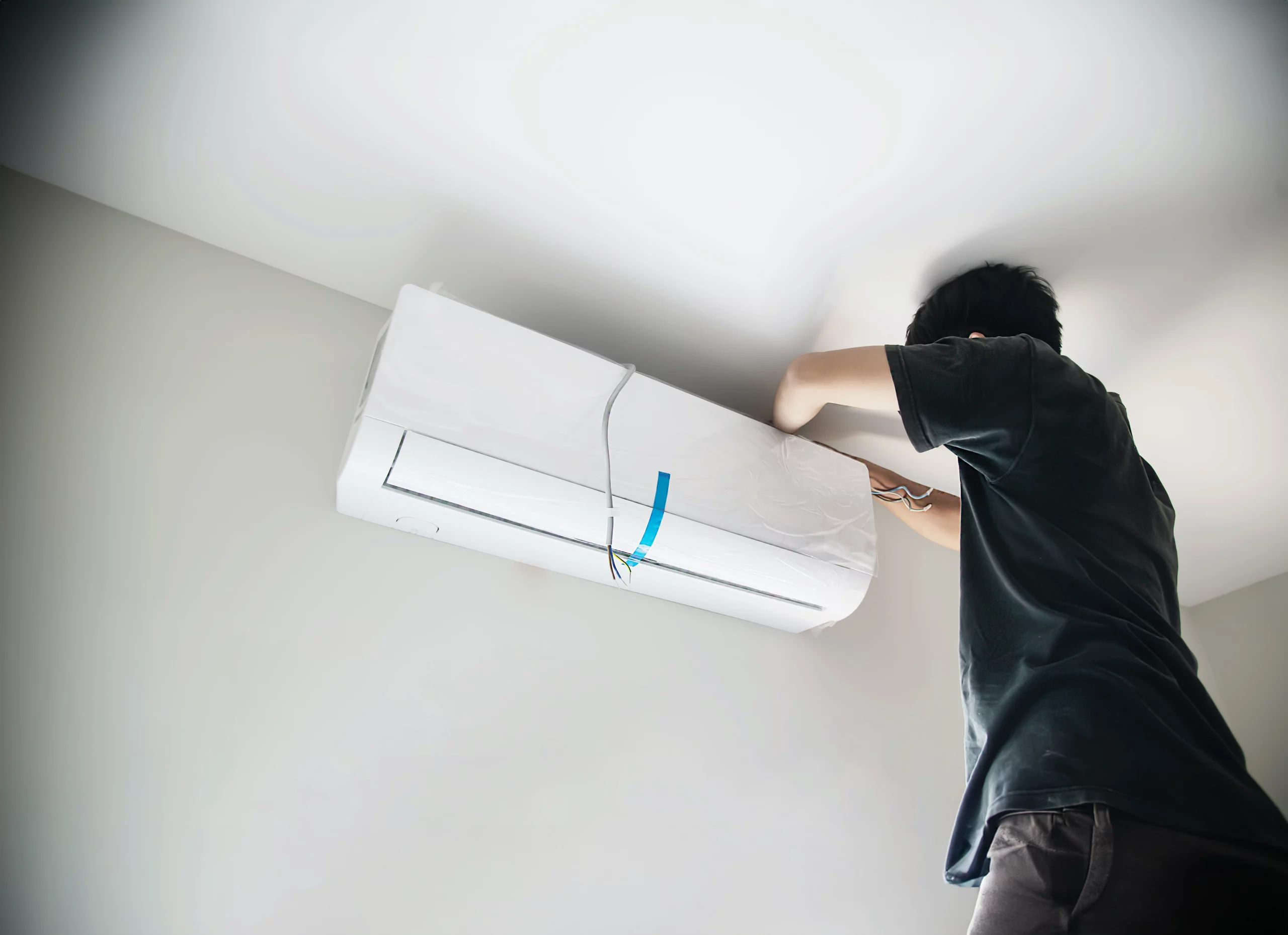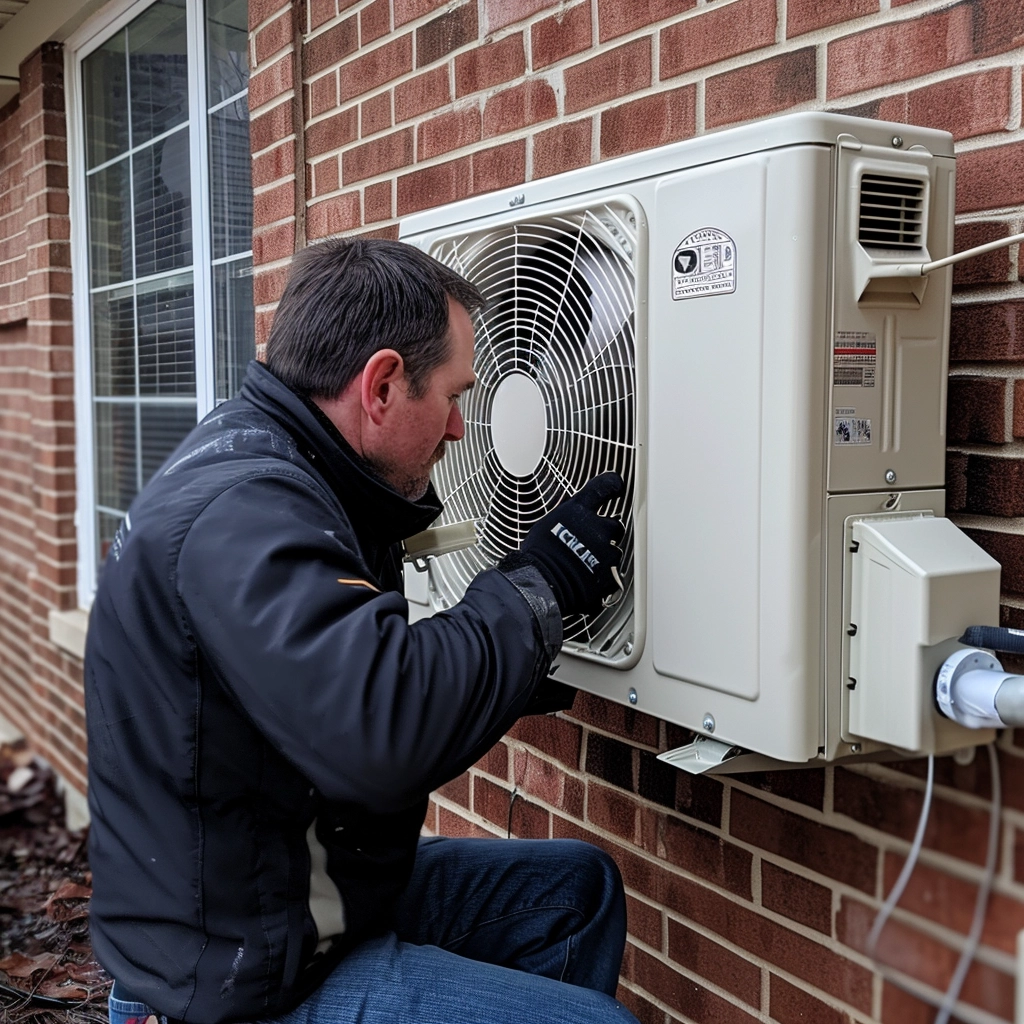Commercial HVAC Services Sheffield UK
When it comes to choosing an HVAC company, don’t waste your time with anyone else but us!
We offer unbeatable prices along with excellent customer service that will ensure that your needs are met and exceeded every time you work with us.
Don’t hesitate to contact us today to find out how we can help take care of all of your commercial HVAC needs!

Contact us today for more information about how we can help ensure your building stays comfortable all year long!


Why choose us?
At Climatech Air Conditioning, we offer fast, reliable, and cheap commercial HVAC services that will keep your business running at peak performance all year round. We understand how important it is for you to have consistent temperatures throughout your building so that your employees can be as productive as possible. Let us help you maintain the right temperature with our expert installation and maintenance services today!

Fast Service
At Climatech Air Conditioning, we pride ourselves on being fast, reliable, and cheap. We know that when it comes to your business's HVAC needs, you don't have time to waste. That's why we make sure to provide top-notch service at an affordable price so that you can get back to what matters most—running your business!
We’re the best choice for commercial HVAC services in the area! We offer fast, reliable, and cheap solutions that will keep your business running at peak performance all year round.










FAQ
When do I need commercial HVAC services? Is it necessary to service my air conditioning unit every year? There are many questions that arise when it comes to air conditioning. Find out when you should have your AC serviced and cleaned. This will allow you to make informed decisions about your air conditioning system. This will help you reduce your energy bills.
If you own a commercial building, it is essential to regularly service your HVAC system. Not only does this maintain the efficiency of your system, it will also reduce your utility costs. Whether you own a small office or a large office building, you should schedule maintenance at least twice a year.
Your HVAC system has a filter to filter out dirt and other contaminants, and when it becomes clogged it will block the air from entering the system, making it less effective. The frequency of maintenance depends on the type and age of your system. Typically, you should schedule preventative maintenance twice a year, in spring and fall. However, if your HVAC unit is older, it might require extra servicing after each season.
When is the best time to schedule maintenance? For commercial HVAC systems, the best time to schedule preventive maintenance is before your system needs it most. Preventive maintenance is best performed in the spring and fall when temperatures are lower. HVAC professionals are less likely to be swamped by emergency calls in these seasons.
While many parts of an HVAC unit can be serviced by the owner, others require more complex repairs or require the services of a contractor. For example, air filters need to be replaced every three to six months. To do this, you can review the manufacturer’s operating manual to find out when you need to service your system. You can also contact the manufacturer’s office for additional information.
The first step in servicing your commercial HVAC is identifying the problem. There are several possible reasons for a malfunction. One common reason is a dirty filter or a blown fuse. Sometimes the problem is more serious and requires the replacement of the entire unit. If this occurs, a technician should be called to perform the necessary repairs.
Regular maintenance can also reduce utility bills. A well-maintained HVAC system can save an owner up to 30% on their utility bills. It can also prevent costly repairs.
Commercial air conditioners should be serviced twice a year, ideally in spring and fall, but in some cases, they may need service more often. Regular maintenance of the unit can prevent expensive breakdowns and increase energy efficiency. It can also help reduce electricity bills. Also, a clean system produces better air quality. This means that less energy is wasted, and you can do your part to reduce your carbon footprint.
Commercial HVAC systems last from 10 to 15 years. The heavy use they endure means that a regular maintenance schedule is essential. A maintenance plan should include twice-yearly inspections, and maintenance, as well as priority HVAC service and after-hours service. Maintenance contracts can also provide discounts on parts and accessories.
One thing to keep in mind is that an air-conditioning system must run for a certain period of time and then rest to keep the building at a comfortable temperature. On hot days, it may be necessary to cycle the system more frequently than usual. Short cycling, however, can damage the unit’s efficiency and lead to uneven temperatures within the building.
Air conditioning units need servicing to maintain their efficiency. However, the frequency of cleaning depends on a number of factors. First, it is important to check the filters regularly. These can get clogged up with dust and allergens over time. Therefore, it is necessary to replace these filters periodically. You can check the filters by using a special tool available at AC wholesalers. Second, the condensate drains may also become clogged. These can lower the AC unit’s capacity to reduce humidity. If the blockages are particularly stubborn, you can use a stiff piece of metal to remove them.
Third, routine maintenance of HVAC units can help reduce energy bills. Regular cleaning can prevent many costly issues, such as a breakdown or malfunction. You should change your air filters regularly if you have pets or suffer from respiratory problems. Additionally, you should keep an eye on your energy bill. These simple tips can help you save money on your electricity bill.
If you are a building owner, you probably know the importance of preventive maintenance, especially when it comes to heating and cooling systems. A properly maintained HVAC unit can save you money in the long run by extending its lifespan. Even the smallest breakdown can result in significant discomfort for occupants.
The maintenance of commercial HVAC systems is essential for the smooth running of a business. Using a checklist to ensure proper functioning can help catch problems before they happen. An HVAC service provider such as Galgon HVAC understands this and wants to make sure your system is running as efficiently as possible and reducing the number of service calls.
Proper preventive maintenance can extend the life of an HVAC unit by preventing breakdowns. It also reduces the amount of energy consumed by the system. When a unit is dirty or inoperable, it consumes more energy than usual, which escalates the overall cost of operating it.
There are a number of things to consider when choosing an HVAC system for your business. Not only should you look for energy-efficient systems, but you also need to make sure that the system is big enough for the size of your building. The wrong size will cause the HVAC system to run inefficiently, and it will also fail to reach all areas of your building effectively.
There are many different types of commercial HVAC systems on the market today. These differences can make it difficult to decide what type is right for your building. Your HVAC system should be suitable for the size of the building, meet air-quality requirements and be efficient. In choosing the right system for your building, it’s best to consult with an established plumbing and HVAC company.
You’ll also want to consider cost-effectiveness. A high-efficiency system will save you money in the long run and will reduce your total cost of ownership. A local HVAC specialist can help you select a unit that will run cost-effectively and require little maintenance. Also, make sure that the unit you buy is not too large for your building, since it will cost more and be inefficient.
If you’re interested in the size of the commercial HVAC market in the United Kingdom, you’ve come to the right place. This report provides answers to important questions about the market and helps industry stakeholders to make informed investment decisions. It includes detailed analyses of major companies, and other players in the market, as well as their profit margins, both in the direct and indirect sales channels.
The growing construction industry in the United Kingdom is a major driver of growth for the commercial HVAC market. As a result, there is an increasing demand for energy-efficient HVAC systems. Furthermore, climate change and technological innovations are fueling the growing adoption of HVAC equipment. In addition, higher housing affordability is supporting the growth of the UK HVAC market.
The commercial HVAC market is dominated by several major companies. These companies have an extensive product portfolio and focus on growing their customer base across foreign markets. To increase their market share, they are adopting various strategies, such as strategic collaborative initiatives and acquiring start-ups that specialize in HVAC services.
There are three major types of commercial HVAC systems. These include window air conditioners, multi-story complex A/C systems, and small, single-unit units. A properly functioning HVAC system will keep the indoor air temperature even and the building and its tenants comfortable. Additionally, good HVAC systems can help keep employees cool and productive. Moreover, some businesses need temperature control for safety and health reasons.
Single-split systems are the least expensive and best suited for smaller commercial buildings. They contain a single indoor and outdoor unit and can be easily expanded with more units as the business grows. The single-split system is more cost-effective than multi-split systems but requires additional space to accommodate the outdoor units. It is also best suited for smaller buildings and requires less space than a central system.
Variable-refrigerant-flow (VFR) systems are quick to install and simple to use. They can provide heating and cooling, or a combination of the two. These systems are also known as heat-recovery systems.

